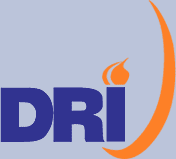 |
Disability |
|
|
• Home(1)
|
The Relation between Disability Insurance Benefits, the Reservation Wage and Return to WorkPrincipal Investigator: Sophie Mitra Project Type: Small Grant Project Year: 05 Thematic Category: Economic Aspects of Disability Project Summary: Social insurance programs, like the Social Security Disability Insurance (DI) program or Workers’ Compensation, protect individuals from unanticipated losses in earnings capacity. At the same time, such programs provide a variety of “return to work services” and incentives for beneficiaries to search for a job and transition back to the labor force. Recently, an increasing amount of resources have been dedicated to return to work programs like the Ticket To Work Program currently under way. Invariably, such return to work initiatives have been characterized by very low participation rates, and return to work remains rare among DI beneficiaries. Little attention has been given to the trade-offs DI beneficiaries face when considering to search for a job and return to work. The reservation wage represents a key aspect of the decision to search for a job and to work for a DI beneficiary, and hence is an important determinant of RTW rates among DI beneficiaries. The reservation wage represents the amount a DI beneficiary would need to earn at work in order to accept a job. For a DI beneficiary to work, the fundamental requirement is that the market wage (i.e., the wage the person is offered in the labor market by a potential employer) exceeds the reservation wage. The major objective of this study is to examine the determinants of the reservation wage and of the job search status of DI beneficiaries at analytical and empirical levels. The job search status indicates whether or not a beneficiary has looked for a job since joining the rolls. The major steps in carrying out this study are as follows. First, we will develop a rigorous analytical framework to assess the determinants of the reservation wage that are related to DI program characteristics such as benefit and SGA (Substantial Gainful Activity) levels and the benefit offset rate. In a second phase, we will determine the determinants of the reservation wage and of the job search status of DI beneficiaries empirically using data from the 1991 New Beneficiary Follow-up survey (NBF). In the NBF, work histories, job search efforts and current work status are available for a cohort of DI beneficiaries who joined the rolls in 1982. The NBF has the advantage of having a reservation wage question that was asked of beneficiaries who were not working at the time of the survey. This study will include an analysis of the policy implications of the model. In particular, we will discuss how benefit and SGA levels, as well as the benefit reduction rate are related to the reservation wage and the decision to search for a job. The project deliverables are (1) quarterly progress reports by September 30, 2004, December 31, 2004, and March 30, 2005 (2) a final report by April 30, 2005; (3) a research presentation to the Disability Research Institute at its annual conference in Spring 2005 on the overall findings from the project. The proposed budget is for a total of $24,456.58 over the period July 1, 2004-June 30, 2005. Project Deliverables:
|
|
|
|
|
|